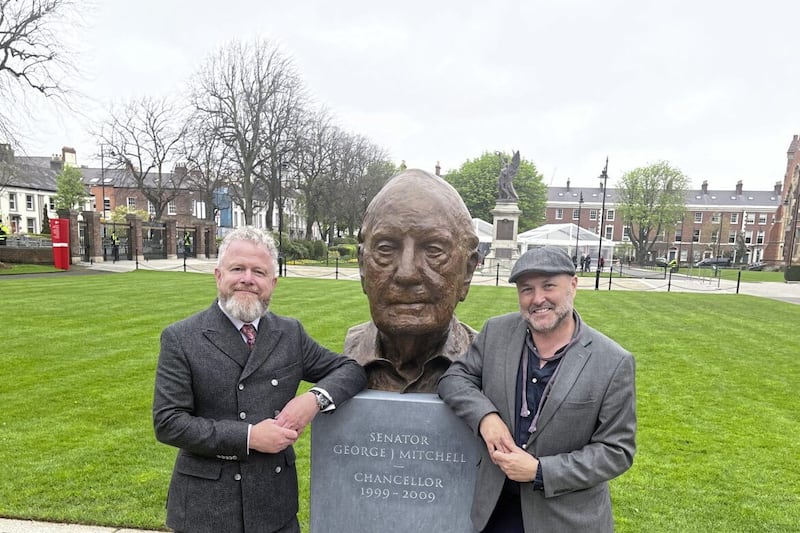DUE to a general slow-down, the political silly season and because I’ve had holidays (usually the only time I ever get to read anything substantial), my summer column has regularly been a business book review.
In the past, I’ve written about Warren Buffett’s biography or reviewed books by my two favourite business writers, Michael Lewis (‘The Big Short’, ‘Liars Poker’) and Malcolm Gladwell (‘The Tipping Point’, ‘Outliers’).
This summer though is an exception. A few factors have made it so. First, I haven’t had my holidays yet and second, there has been the rather large issue of Brexit.
We’re a month on and we’ve had a change in the UK Prime Minister and a whole new cabinet. The ripples of the UK’s exit from the EU (whenever that might actually happen) have been felt all over the world. In our own region we voted to remain but the overall vote to leave has caused widespread fear amongst businesses that the recovery we were feeling at the end of last year and the start of 2016 is coming to an abrupt halt. Still, there seems to be some contradictions. A look at the business pages of the Irish News last Friday bears that out.
Spread across the top half of one page was a report of the Northern Ireland Composite Economic Index which showed that our economy here grew by 0.4 per cent in the first quarter, similar to that for the rest of the UK. However the annual figure at 0.7 per cent was very far off the pace with Britain.
PwC’s chief economist Esmond Birnie said it cast a ‘sober perspective’ on the relative performance of our economy in comparison to the rest of the UK. There were some small flashes of encouragement from the private sector in the figures, particularly in services and construction, but the overall picture was poor.
Beside that was a report about Charles Hurst’s car businesses topping £500m in sales last year. Those figures also include a smaller business in western Scotland but represent a 12.9 per cent increase on last year and say something pretty positive about the outlook of the consumer here.
Given Brexit, I wonder what the picture will be like next year, not anywhere near as strong I suspect. The last story on that page was a report on mergers and acquisitions in Northern Ireland in the first half of this year, the total value of which was £798m in a reported 93 deals. On the face of it, that sounds like a good number for a small economy like ours but the overall value was down by over 30 per cent on last year.
Again, I’ll be interested to see what this figure looks like in the second six months of this year, post-Brexit. I know of one deal which would have brought at least £100m of construction spend to the Greater Belfast area which collapsed once the referendum result was announced. The non EU investor was not willing to risk the cash if we were going to be outside the EU.
Anecdotally, I was speaking to one of the larger residential estate agents in Belfast last week and he was telling me that house purchasing at the higher end had slowed considerably in advance of the referendum due to caution and had slowed even further in the month since. The caution and fear in the business world here is palpable and if you looked at the Purchasing Managers Index (PMI) figures issued last week, you wouldn’t be feeling any better.
The PMI has been a valuable and accepted way of measuring business sentiment for some years. The figures last week showed the lowest readings since March 2009, the nadir of the global economic recession. Even with the negativity which has marked the post-Brexit economic environment (albeit that equity markets and some other indicators have stabilised), the PMI figures seemed to be a shock and all eyes are now turning to the Bank of England and its Monetary Policy Committee meeting next week.
Will interest rates be cut? The Bank has a delicate balancing act between incentivising spend through a cut and fuelling inflation which has been kept at very manageable levels in recent times. The betting seems to be that there will be a cut of 0.25 per cent along with other measures to try and boost growth given the downgrading of the Bank’s growth forecast and the high levels of negative sentiment in the PMI index.
So, if you are borrower with a variable rate loan, it seems you’re likely to get some good news next week. If you are a saver, the news is likely to be less good and will only add to your post-Brexit gloom if you are feeling it, I know I was.
Last, I just wanted to mention an article from one of the Dublin Sunday papers at the weekend from the economist David McWilliams. In it, he did a comparison of the two economies on this island, and while I knew the Republic had forged ahead on all fronts over the last 20 years, I wasn’t quite aware of the levels of disparity which now exist.
We have a strong industrial heritage up here but the republic’s industrial output is now 10 times greater than that of Northern Ireland. The exports differential is 15 times greater and income per head is over 50 per cent greater in the republic. The economy south of the border is steaming ahead, we are like a little tug boat that hasn’t made it out of the harbour.
I’m not trying to make any big political point with that, nor am I saying this economy can’t do well, as we have plenty of success stories and lots to be proud of.
But as I write this, Theresa May has just arrived to talk about the new border we’re going to have on this island, once the UK leaves the EU. I hope for all our sakes, the way remains open for us to benefit from trade, overspill and the potential knowledge we can share with our colleagues and friends in Dublin.
Meantime, I am going to get a holiday and I am going to try to read at least one business book - I have quite a few in the pile to choose from.
:: Paul McErlean (Paul@mcepublicrelations.com) is managing director of MCE Public Relations (www.mcepublicrelations.com).
:: Next week: Claire Aiken








